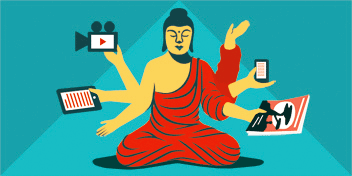When doing your Zazen, is it typical to feel "out of body?"
When I do my meditation, over the last few times I find I feel like I'm above my head, tall and very light like paper. I know it is practice not to dwell on your meditation, I'm just curious as to why I may feel this way?
I also find I get very warm. The room will be cool; and I meditate in linen pants and a light cotton shirt so clothing shouldn't be an issue (could be, I'm not sure) and once into my meditation; and before feeling my "out of body" feeling, the room will get warm like the sun is in it (I meditate before bed) and I get warm and then feel out of my body.
I do hope I'm not doing my Zazen to harm my body in this way, I don't ever feel out of breath or strained afterwards .. I actually feel quite calm, sleepy and at peace afterwards.
I apologize for my curiosity, I'm just eager to learn.
Gassho,
Chelsea
When I do my meditation, over the last few times I find I feel like I'm above my head, tall and very light like paper. I know it is practice not to dwell on your meditation, I'm just curious as to why I may feel this way?
I also find I get very warm. The room will be cool; and I meditate in linen pants and a light cotton shirt so clothing shouldn't be an issue (could be, I'm not sure) and once into my meditation; and before feeling my "out of body" feeling, the room will get warm like the sun is in it (I meditate before bed) and I get warm and then feel out of my body.
I do hope I'm not doing my Zazen to harm my body in this way, I don't ever feel out of breath or strained afterwards .. I actually feel quite calm, sleepy and at peace afterwards.
I apologize for my curiosity, I'm just eager to learn.
Gassho,
Chelsea






 All that worrying was a nice reminder for how I should conduct myself better... maybe finally go back and ask help from professionals about this ADD thing.
All that worrying was a nice reminder for how I should conduct myself better... maybe finally go back and ask help from professionals about this ADD thing.

Comment